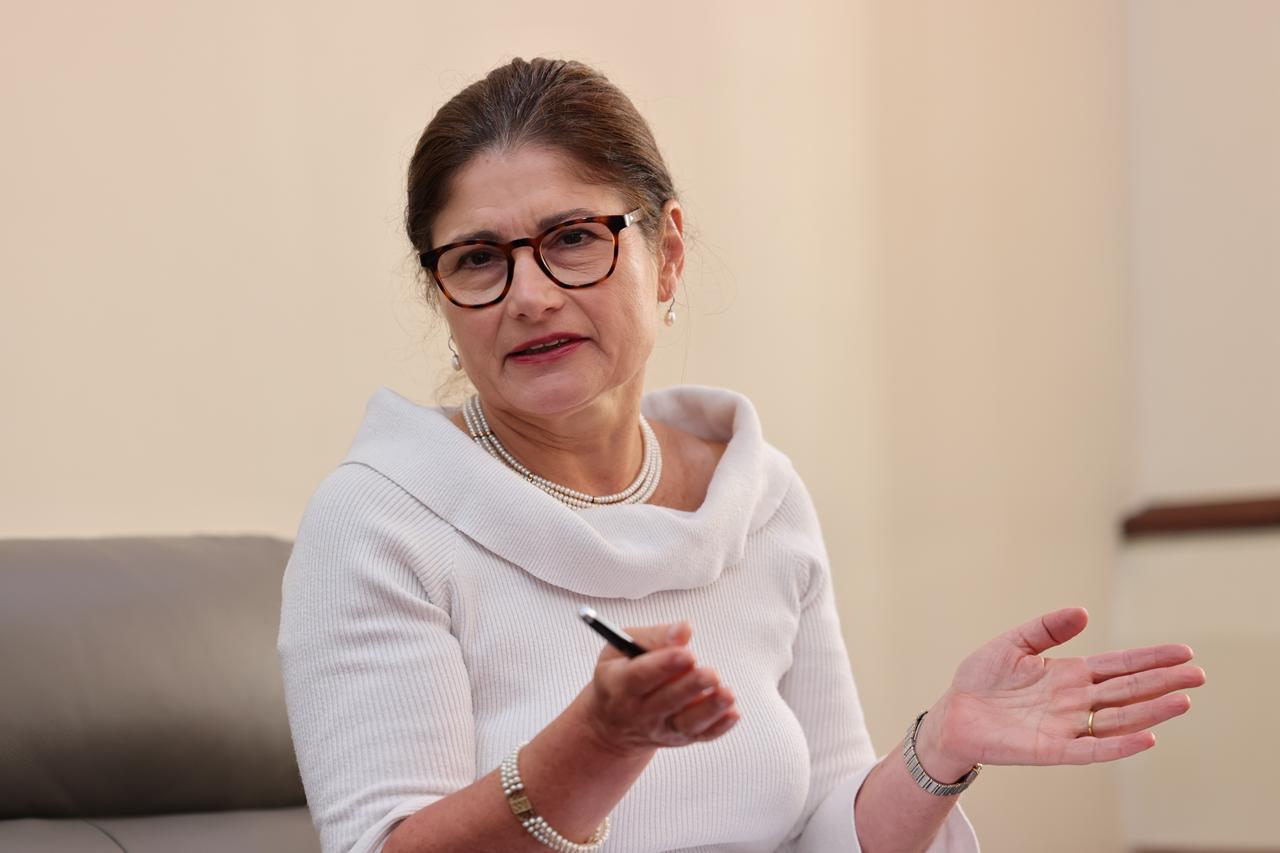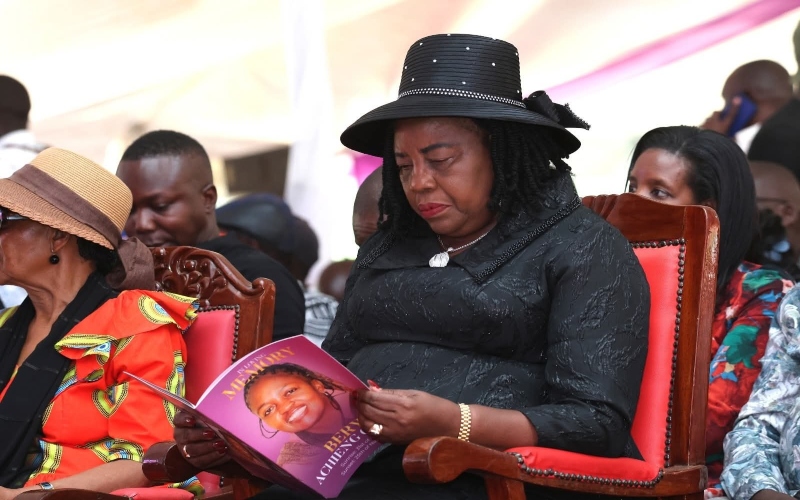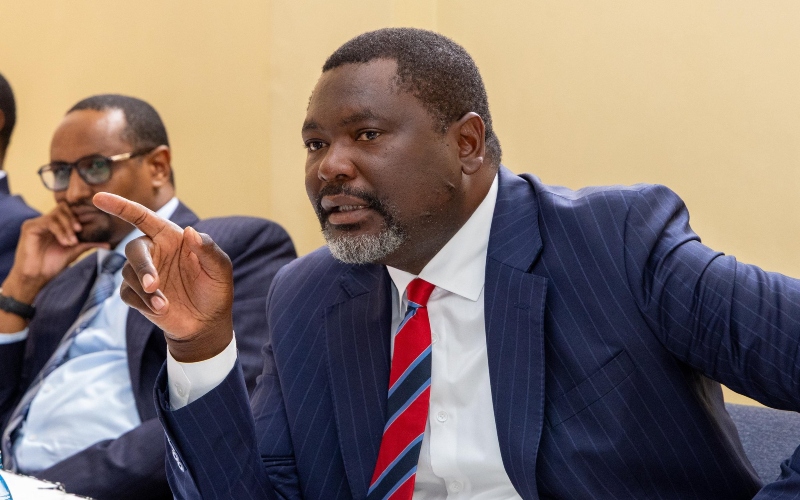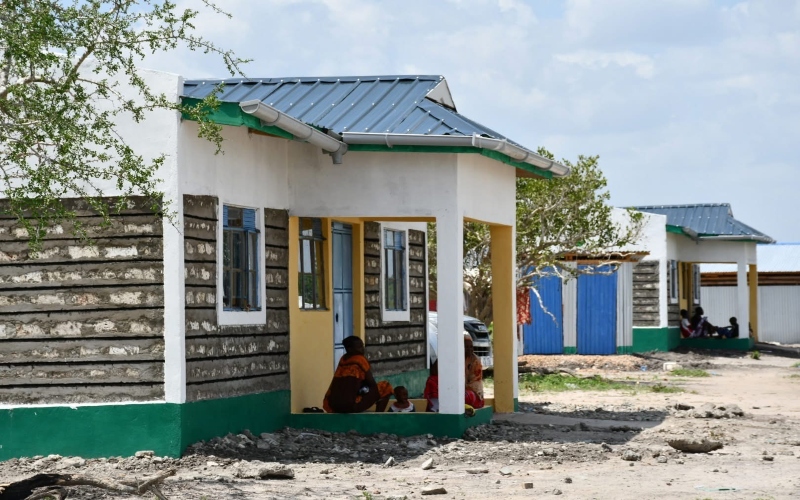Kenya, EU ink Sh4.8 billion deal on environment and climate protection

One of the agreements under the new deal involves Sh600 million for developing a robust measurement, reporting, and verification (MRV) system for Kenya’s Nationally Determined Contribution.
Kenya has secured a Sh4.8 billion funding deal with the European Union (EU) to boost environmental protection, fight climate change, and support communities whose livelihoods depend on natural resources.
The agreement will also promote the restoration of degraded areas and accelerate the country’s transition to greener practices.
More To Read
- Green economy now second-fastest global growth frontier, value hits Sh646.4 trillion - report
- Supporting Africa’s drylands: Insights from the pastoralists who call them home
- EU and Africa launch regional maritime security plan to tackle piracy and trafficking
- Cameroon opposition activist Anicet Ekane dies in custody; party demands accountability
- Rwanda Cabinet approves reforms on transport, currency, climate
- Tanzania dispatches envoy to Brussels to avert Sh23.3 billion EU aid freeze
EU Ambassador to Kenya Henriette Geiger highlighted the strong partnership between Nairobi and the EU on climate and environmental issues.
She emphasised that both sides share a common responsibility in addressing climate challenges.
“We are committed to green transition because we are all in the same boat,” she said, pointing to ongoing measures aimed at limiting global warming.
Geiger mentioned examples such as installing solar panels at Kisumu prison and engaging young people in discussions on implementing green initiatives.
She also noted that the Belgian embassy has achieved net zero emissions, reflecting wider efforts to combat climate change. She stressed that adopting sustainable practices benefits not only the environment but also economic activities and community welfare.
One of the agreements under the new deal involves Sh600 million for developing a robust measurement, reporting, and verification (MRV) system for Kenya’s Nationally Determined Contribution.
The project will establish a legal and technical framework to track the country’s climate commitments under the Paris Agreement. Both the national government and county administrations will be involved in its implementation.
The MRV system will help Kenya monitor its greenhouse gas reduction targets and provide reliable reports on progress. Linda Kosgei, head of multilateral agreements at the environment ministry, welcomed the support, saying it will enhance the government’s capacity to document and report interventions.
“The successful implementation and achievement of our NDC hinges on a robust and comprehensive monitoring, reporting and verification system,” Kosgei said.
Wildlife PS Silvia Museiya thanked the EU for the assistance, noting it comes at a time when some donor support has declined.
She said certain resources that previously supported rangers have dwindled, putting the protection of the country’s wildlife at risk. Museiya also urged the sharing of information as the project begins.
In addition, the EU and the government signed a Sh2.1 billion contract to strengthen climate resilience in the Lake Baringo watershed.
The project will encourage sustainable land management to address challenges such as deforestation, land degradation, and climate impacts. The programme will follow a Team Europe approach, with Italy and Germany working closely with Kenya’s national government and Baringo county authorities.
Baringo Deputy Governor Felix Maiyo said the initiative will help restore the lake and improve resilience in the surrounding ecosystem. He noted that Lake Baringo has faced multiple pressures that threaten its ecological balance.
“This investment underscores the urgency of addressing environmental challenges facing the region’s vital ecosystem. The lake was once a biodiversity hot spot but is now facing a multitude of threats,” Maiyo said.
Top Stories Today














































